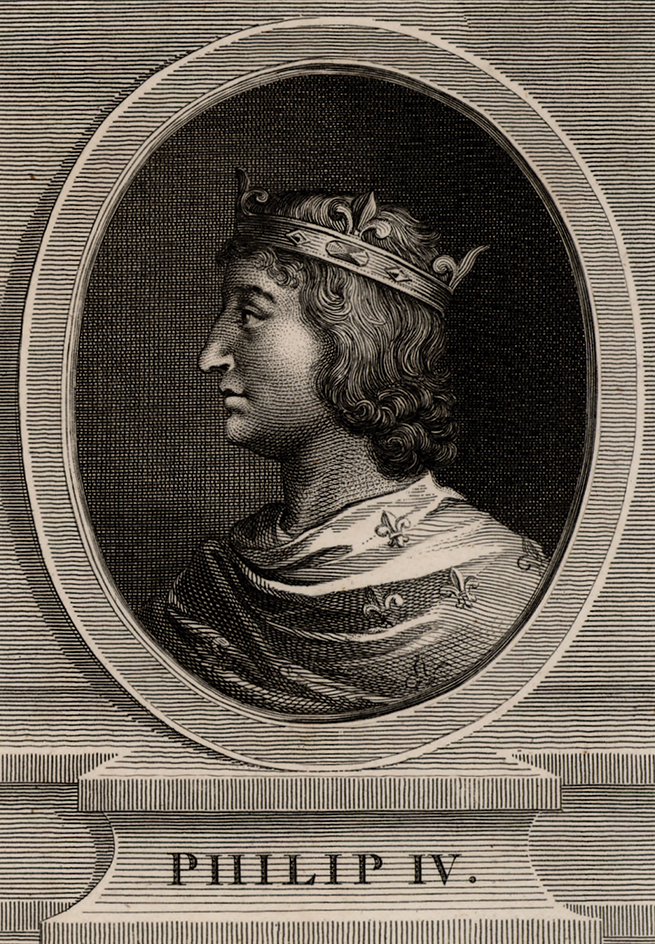Philip IV (1268-1314) of France succeeded his father, Philip III, as king in 1285. Philip IV was called “the Fair” because he was considered handsome.

Philip challenged the power of Pope Boniface VIII in 1301 by arresting a French bishop whom Boniface had appointed. In 1302, Philip taxed Roman Catholic churches against the pope’s orders. Philip’s actions were approved by the first Estates-General, a body of Frenchmen he called together in 1302. This group, which included representatives of the clergy, nobility, and middle class, was the ancestor of the French Parliament. Philip had Boniface arrested at Anagni, Italy, in 1303. But the townspeople freed the pope. In 1305, Philip arranged the election of a French archbishop as pope. The new pope, Clement V, moved to Avignon, France, in 1309 and carried out Philip’s orders, which included persecuting the Knights Templars, a wealthy military order with strong ties to the papacy. Philip was born in Fontainebleau, France. He died on Nov. 29, 1314.
